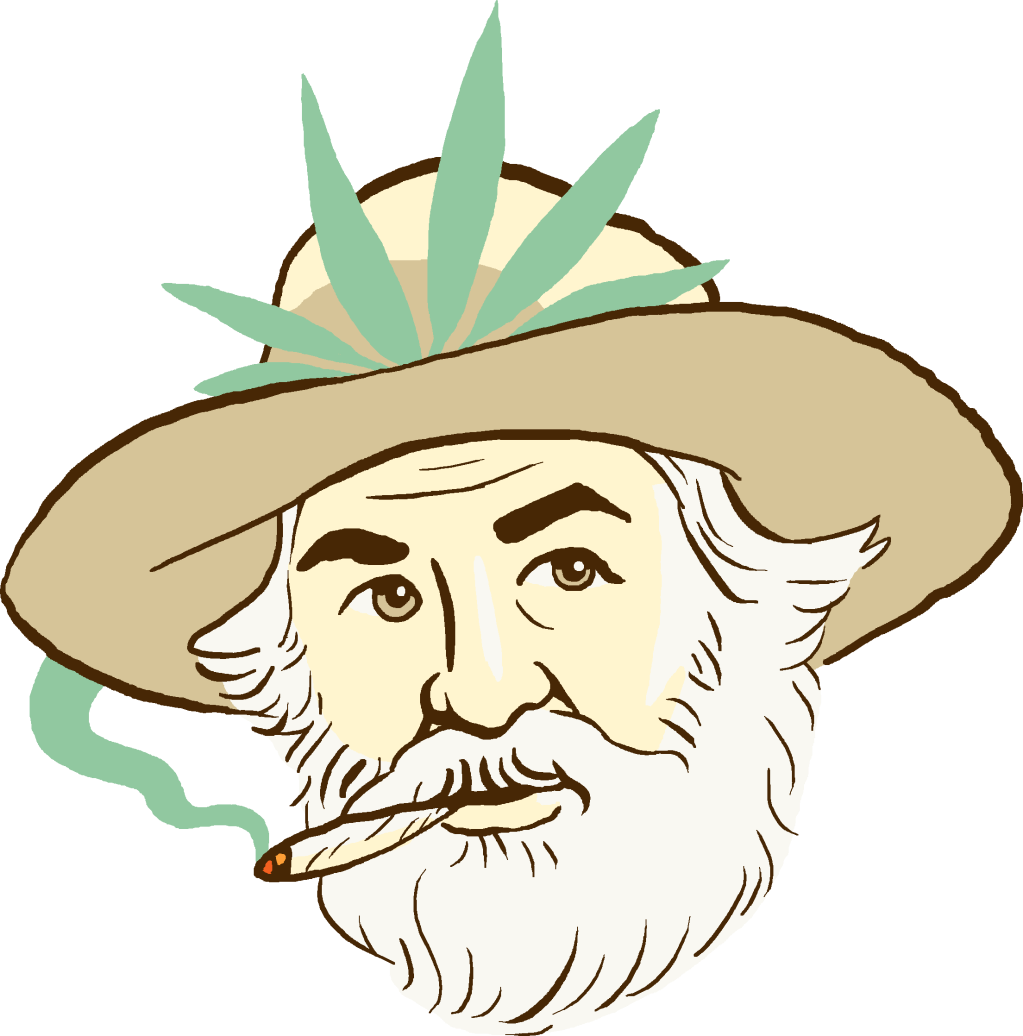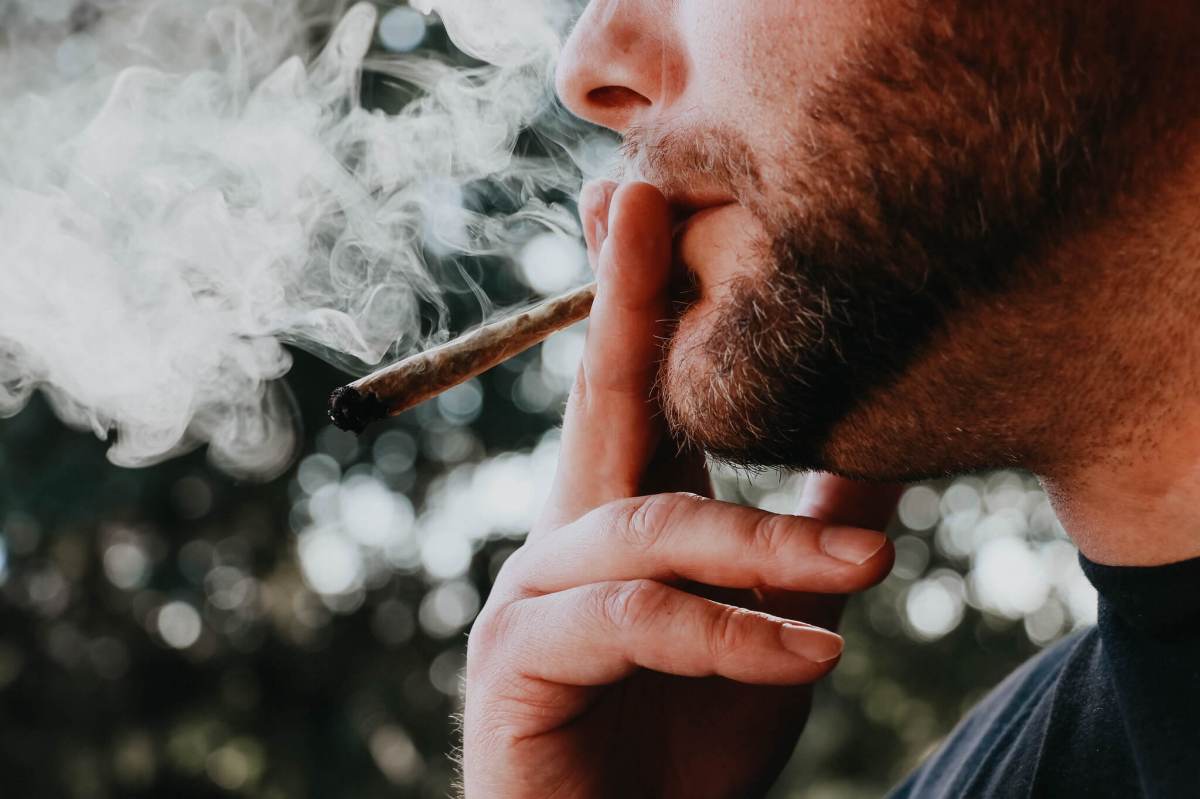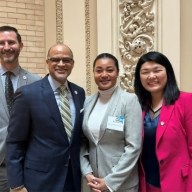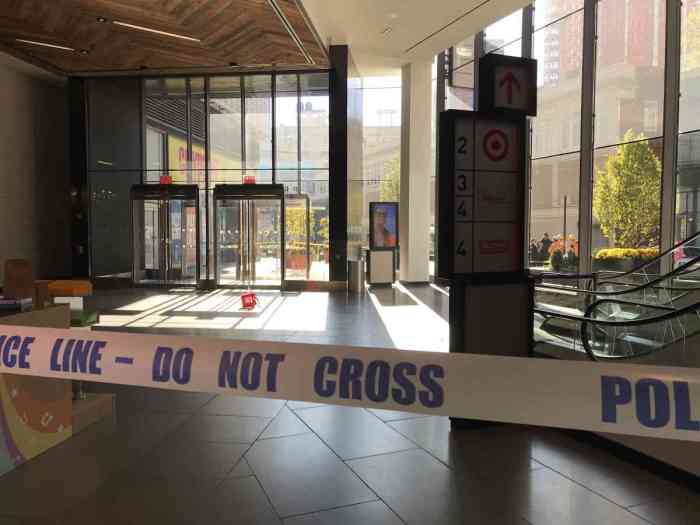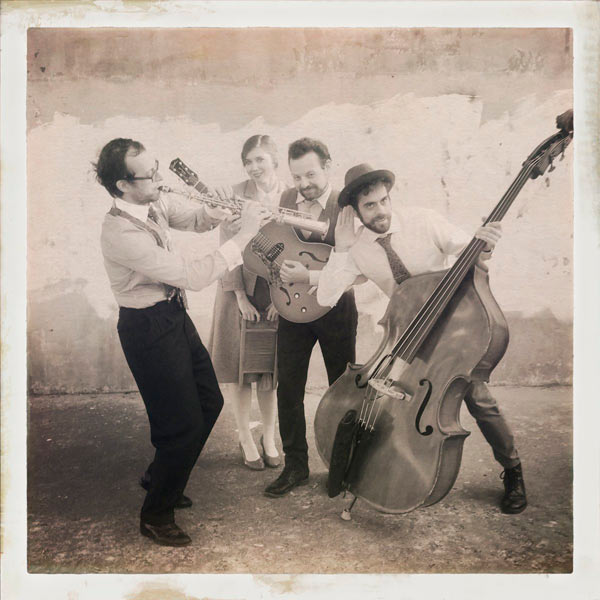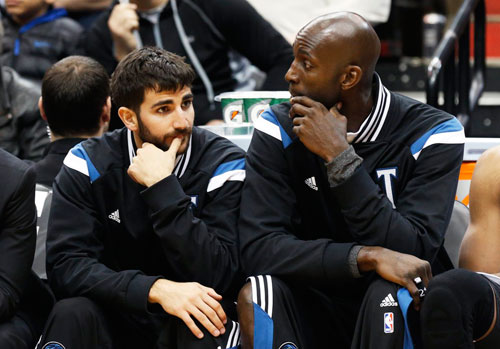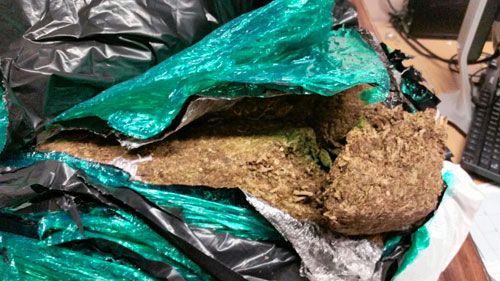The first legal retail marijuana dispensaries are set to open in the Empire State this fall, and many budding entrepreneurs are hoping to get in on the ground floor of Brooklyn’s burgeoning legitimate weed trade.
The sticky icky was legalized for New Yorkers 21 and older back in March 2021. While possession has been legal since then, it technically remains illegal to sell the drug as the state has not yet started approving licenses.
The drawn-out process of devising regulations and provisioning licenses was specifically designed to redress the historical harms wrought by marijuana prohibition, specifically upon low-income communities of color, and to prevent the monopolization of the industry by white venture capitalists who were never on the wrong side of law enforcement, as has been seen in early legalization states like Colorado.
“We are not going to have big corporations come in and monopolize this process,” said Jason Salmon, deputy director of outreach for the state’s Office of Cannabis Management. “This is not big tobacco.”
OCM, which is devising the state’s weed regulations, says that its ultimate goal is for at least 50% of marijuana licenses — for operations like retail dispensaries, delivery, growing, processing, distribution, and on-site consumption at bars, among others — to go to “social equity” applicants, including those from communities disproportionately impacted by the war on drugs and distressed farmers.
But before OCM starts granting thousands of expected licenses, those most directly impacted by marijuana prohibition — people who were arrested and convicted on weed offenses — are getting the state’s first enter into the dank bud enterprise, but on a strictly limited basis with stringent criteria.
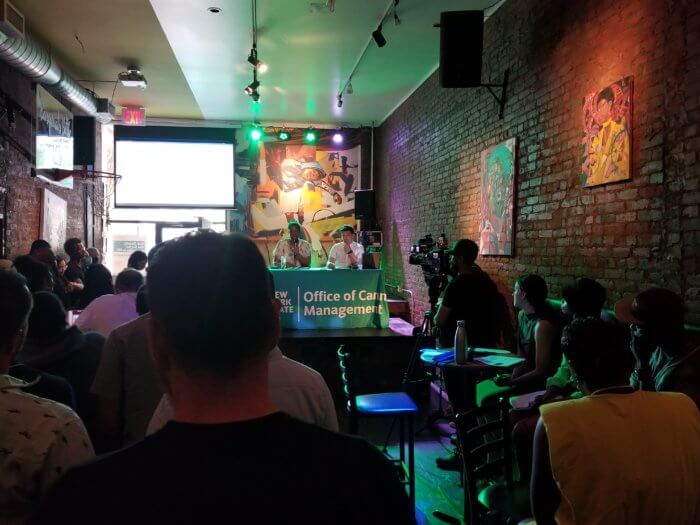
On Monday, dozens of hopeful kush pushers descended on Basquiat’s Bottle, a bar on Fulton Street in Bedford-Stuyvesant, for OCM’s first “cannabis conversation” with Brooklyn residents, answering questions on the provision of Conditional Adult-Use Retail Dispensary (CAURD) licenses.
Only 150 of those licenses will be distributed throughout the state, but their recipients will be the first to open legal dispensaries later this year. Successful applicants will be either someone with past marijuana convictions or their relative and have a record of owning at least 10% of a profitable business.
“We don’t care if you got caught with a dimebag on Fulton, or if you were pushing serious weight,” Salmon said. “That qualifies.”
The lucky few will benefit from substantial investment by OCM, with the state promising up to $1.5 million per licensee to help build up their business.
Douglas Bradley and Fidel Edwards, decades-long friends from Bed-Stuy, hope that they might fit the bill for a CAURD license. Both have marijuana possession convictions in their past, and see the licit market as a means of rebuilding what the state took from them by targeting them for arrest.
“It’s a lucrative business, it can provide generational wealth,” Bradley told Brooklyn Paper. “I think that after years of getting in trouble for it, I think it’s great that they’re looking at us first to make money off of it.”
Banton Banton, another Bed-Stuy resident in attendance, has been preparing for this moment for a long time. While he wouldn’t disclose if he has past convictions, Banton is a student in the cannabis minor program at historically-Black Medgar Evers College, where pupils comprehensively learn the business of bud, from cultivation to distribution, to the health and wellness benefits of the venerable cannabis plant.
“With this industry emerging, they’re gonna ask what are your qualifications,” Banton said, noting that he would have the opportunity to say he has a literal degree in weed.
As an intellectual connoisseur of the green, Banton, who would like to open a dispensary in Bed-Stuy, also pointed out that the industry will be far more wide-reaching than just the directly handling the sticky icky. OCM says the same thing, encouraging entrepreneurs not only to consider licenses beyond the popular retail dispensary, but also at “ancillary” businesses like manufacturing vapes and pipes, packaging, security, transport, and e-commerce.
“What many people don’t know is it’s also an ancillary plant,” Banton said. “Which means you don’t even have to touch the plant, you don’t have to see the plant, in order to be a part of it. So I believe that this industry is gonna be vastly needed.”
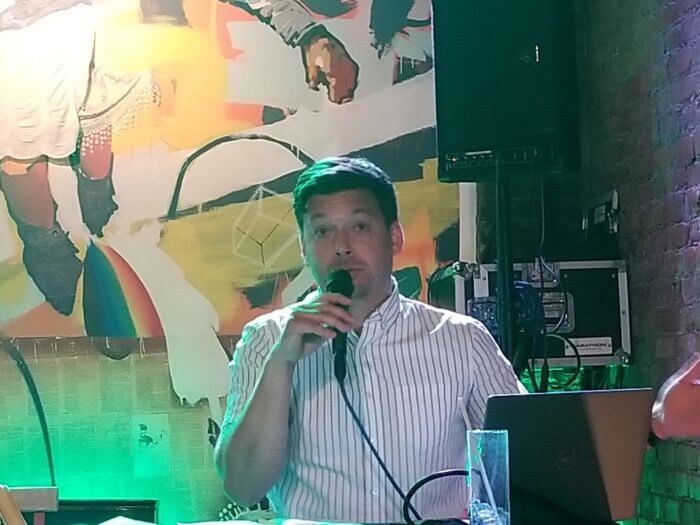
Since OCM is still working on crafting rules and regulations, many participants’ questions went unanswered, with reps for the office asking for “grace” when they couldn’t give a concrete reply. One area that remains to be determined is when licenses will begin to be distributed, though an OCM rep says the application will most likely open sometime around the end of summer. A known factor, however, is CAURD applicants will have to fork over $2,000 to OCM, though recipients will benefit from substantial state investment.
Some aspiring ganja-preneurs feel the requirements for a CAURD license are too stringent, and box out most of the people who were victimized by marijuana prohibition.
Shake, a weed dealer from East New York who did not provide her government name, attended the meeting despite knowing she wouldn’t be eligible for CAURD. She would like to open a dispensary in Williamsburg, but says that her 17 marijuana arrests and three convictions, plus ancillary charges like disorderly conduct, make it difficult for people like her to even land a steady job, let alone access the capital needed to own a business.
“I think it’s made to keep the very same people that they’re trying to let in, let out. They say okay, I’m gonna give it to people convicted of marijuana crimes, but then you say you have to own a business for at least two years,” said Shake. “A lot of people in my community don’t meet those requirements. A lot of people in my community get arrested so much they couldn’t even get a good job to get the proper funding to open a business. It’s damn near impossible.”
Salmon, a self-described cannabis consumer and former candidate for State Senate, disagrees: he said when he joined OCM, he initially was a skeptic of the profitable business-owning requirement, thinking it would severely limit the pool of applicants and run counter to the state’s social equity goals.
“But I can tell you, in the last month, I’ve been to Syracuse, I’ve been to Utica, Schenectady, we’re now here. Tomorrow I get on a plane to go to Buffalo. They’re out there,” Salmon said. “I met a barbershop owner in Buffalo who used to be in the game, he qualifies. We had someone in Utica who actually came in with their paperwork, that we could not accept obviously because we haven’t even opened up the application. So when I say that they’re out there, they’re definitely out there.”
Other questions persist around eligibility given that many “justice-involved” people with a history in the weed game may have had their convictions expunged; in Brooklyn, DA Eric Gonzalez and his predecessor Ken Thompson have dismissed virtually every open marijuana warrant and have encouraged residents with records to get their convictions expunged. Salmon says that even if a conviction had been erased, applicants can get a “certificate of disposition” from the court system to present proof of a past conviction.
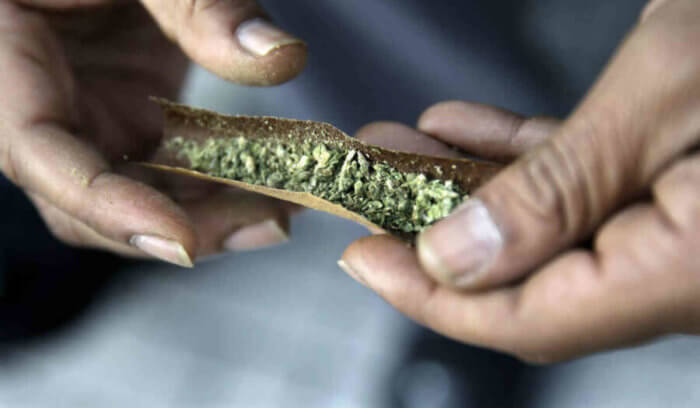
But the sprawling manner in which the American government has criminalized marijuana means not every case is so clear-cut. Helen, a sustainability consultant from Crown Heights who asked that her last name be redacted, attended on behalf of her partner, whom she said is a former weed dealer with numerous brushes with Johnny Law on his rap sheet that now owns two small businesses in the Bronx. The couple think he’s a perfect fit for a CAURD license.
“He knows a lot about it, it just was illegal,” Helen said. “If it was legal, he’d have been doing it earlier.”
Helen said her partner has already taken out loans and hired lawyers in anticipation of receiving a license, but she was unable to get an answer to a burning question of whether people with conditional discharges, like her partner, are eligible for CAURD.
“He took out loans, he’s meeting lawyers,” Helen said. “He’s getting prepared for the fall without knowing if he is even eligible.”
The slow-moving, restrictive process is for the benefit of the Empire State’s soon-to-be-licit industry, according to OCM.
The office could start approving licenses right now, Salmon said, but that would leave those most harmed by prohibition in the dust and favor the rich and connected. And the state could allow for mass importation of weed from California so “every bodega…on every block is selling $25 eighths,” Salmon says, but that would keep New York growers and sellers from being able to build wealth from the industry.
“This bill allows for small business to exist. And to prevail,” Salmon said. “We here won’t actually get a shot if every bodega and local convenience store on every block is selling $25 eighths. It won’t work, we all know that. That’s the way we’re trying to protect the market.”


